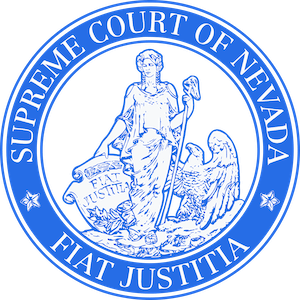Tuesday, December 19, 2023, Oral Arguments
STATE OF NEVADA VS. DISTRICT COURT (BROWN)
Las Vegas – 1:30 P.M. – Cadish/Pickering/Bell
TREJO (MARIO) VS. STATE
Las Vegas – 3:00 P.M. – Cadish/Pickering/Bell
STATE OF NEVADA VS. DISTRICT COURT (BROWN)
Docket No. 85990
Las Vegas – 1:30 P.M. – Cadish/Pickering/Bell
Petitioner seeks a writ of certiorari, or in the alternative, prohibition, to prevent the district court from denying its motion to dismiss the second amended complaint. In the original proceeding, a jury awarded real parties in interest a judgment, petitioners appealed, and this court reversed. Thereafter, real parties in interest sought to amend the complaint to address the bases for reversal, which the district court granted. ISSUES: (1) did the district court exceed its authority in permitting the amendment, and (2) did the district court’s action violate the mandate rule and the law-of-the-case doctrine.
TREJO (MARIO) VS. STATE
Docket No. 84724
Las Vegas – 3:00 P.M. – Cadish/Pickering/Bell
This is an appeal from a judgment of conviction, pursuant to a jury verdict for first degree kidnapping and robbery with the use of a deadly weapon. As a result of his injuries sustained during the robbery attempt, appellant lost the ability to speak and could only communicate through hand signs and writing. At most pretrial hearings, including hearings after appellant’s request for disability accommodations, correctional officers read appellant’s written statements. At trial, an interpreter was provided to appellant. Appellant also sought different counsel but chose to represent himself when his grievances with his current counsel did not merit appointment of new counsel. At trial, the district court admitted video footage over appellant’s objection that he had not viewed the videos. ISSUES: (1) did the district court violate appellant’s right to an interpreter at pretrial hearings, (2) did the district court violate appellant’s right to counsel when it denied his motion to replace his appointed counsel and granted his motion to represent himself, (3) did the district court improperly admit video evidence at trial, (4) did the district court err when it failed to instruct the jury on lesser included offenses and voluntariness of appellant’s confession, (5) did the district court improperly allow admission of bad acts evidence without providing a limiting instruction, (6) was there sufficient evidence to support the conspiracy conviction, and (7) does cumulative error warrant reversal?

